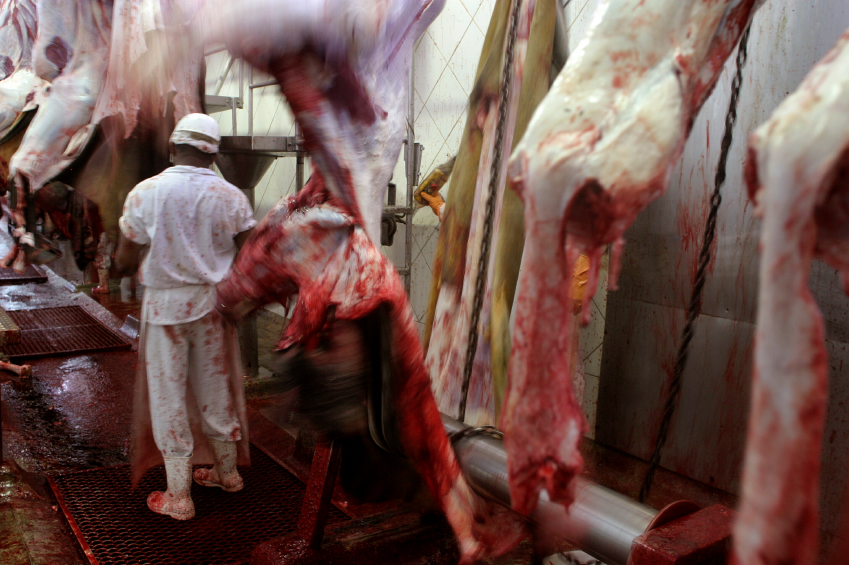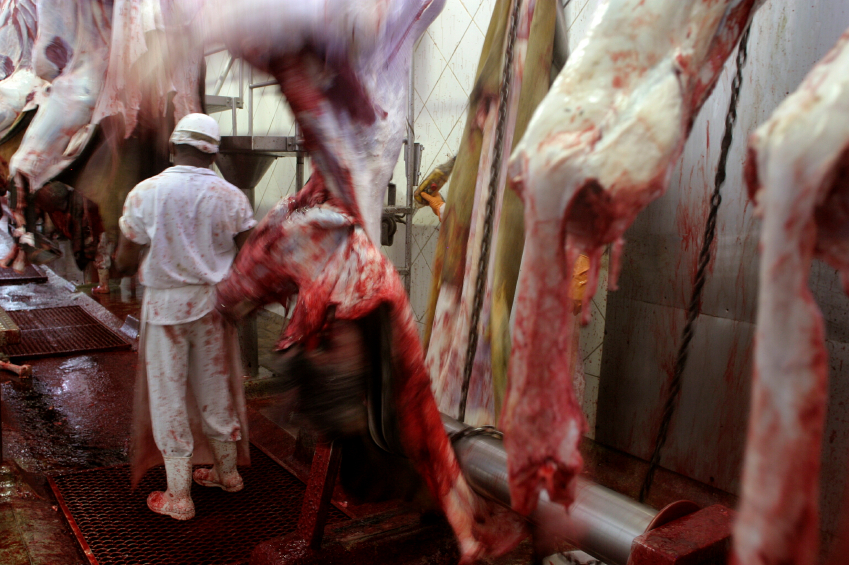 An update appears at the bottom of the post:
An update appears at the bottom of the post:
The American Academy of Microbiologists (“the world’s oldest and largest life science organization”), just issued a major report on antibiotic resistance which, among many recommendations, calls for decreasing or eliminating the use of antibiotics in animal production. The report adds more support for the Preservation of Antibiotics for Medical Treatment Act (PAMTA), Rep. Louise Slaughter’s (D-N.Y.) bill before Congress that would end sub-therapeutic doses on antibiotics for livestock.
However, if the industry website Meatingplace is any indication, Big Meat really wants you to ignore that particular detail. What stood out in their reading was this bit (sub. req.):
“There are no scapegoats,” states the report, Antibiotic Resistance: An Ecological Perspective on an Old Problem, which is based on a colloquium convened by AAM in October 2008. “Responsibility is partly due to medical practice, including patient demand; veterinary practice; industrial practices; politics; and antibiotics themselves. Ultimately, resistance development is founded in the inevitability of microbial evolution.”
The report states further that antibiotic resistance is essentially uncontrollable. Nonetheless, the colloquium stressed the importance of “deliberate efforts” to contain and minimize transmission of resistant organisms as well as antibiotic use.
Actually, the report says that resistance is inevitable, not uncontrollable. Resistance is, of course, a function of evolutionary natural selection and has roots that go back billions of years. But the whole report is indeed about coping with and managing resistant strains as well as reducing the risks to public health.
But the report is very specific when it comes to farm practices. It explicitly endorses Denmark’s successful livestock antibiotic ban as a example of Europe’s “effective models for improving farming practices.”
And don’t forget the big finish where the report not only praises Europe’s ban “on the use of growth promoters” — a reference, no doubt, to using antibiotics as well as artificial hormones as growth promoters — but it also says this:
On the farm, the use of antibiotics should be improved and more extensively controlled. Europe has banned the use of growth promoters, but this is only a part of needed improvements in veterinary medicine, including promotion and implementation of prudent use of antibiotics, quality of animal housing, biosecurity, and vaccinations. A global effort is essential. Every country should revise animal production practices with responsible use of antibiotics; the amounts used currently must be decreased or eliminated.
Get that? “Decreased or eliminated.” So go ahead, Big Meat, run around touting this report. You might just do the good guys a favor.
UPDATE: Philip Brasher of the Des Moines Register spoke with FDA Comissioner Margerat Hamburg after she testified before the Senate yesterday in reference to the possibility that the FDA would restrict the use of antibiotics in livestock without waiting for Congress to act. Here’s what Hamburg said:
[The] FDA is “examining the issue with other partners” in government and studying how to target antibiotic usage “for therapeutic need.”
She said antibiotic resistance “is one of the most pressing public problems of our day.”
The tell is the use of the phrase “therapeutic need,” i.e. when an animal is sick. Even under Denmark’s antibiotics ban, that kind of use is allowed. Hamburg’s response certainly leaves one with the impression that the FDA will indeed act on antibiotics soon if Congress doesn’t. Stay tuned.




